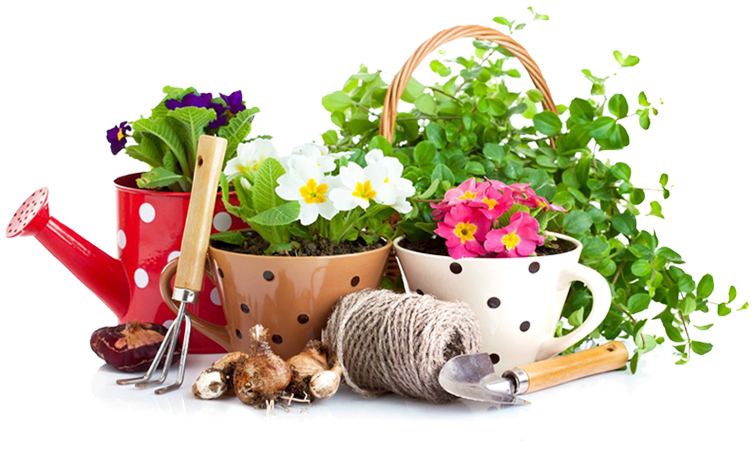June
Garden Calendar for June
June is the first month of summer and a busy time in the yard and garden. Maintenance of plantings is the focus of much of this activity.
Shrubs and Trees
- Prune spring-blooming shrubs (forsythia, lilac, mockorange, weigela) after they have flowered.
- Pinch back new candles on pines as soon as they have elongated to create a denser and more compact plant.
- Check landscape shrubs for insect pests; apply control measures before the pests take over. Not sure what kind of critter has invaded your garden or what to do about the pest? Plant care information is readily available from the garden experts at Reds. Call, visit, or email us with your questions.
- Fertilize acid-loving plants such as azalea and rhododendron using an acid-based soluble fertilizer containing iron. This is also a good time to top-dress them with pine bark mulch.
- Deeply water newly planted trees and shrubs every 7–10 days.
Fruits and Vegetables
Finish planting your summer garden (pumpkins planted now should make fine Jack-O-Lanterns come Halloween) and begin monitoring plantings for insect pests.
Mulch to control weeds and maintain an even moisture level. Watering and weeding are very important to get plants off to a good start.
For staked tomato plants, remove suckers (branches that form where the leaf joins the main plant stem) when they are 1–1½" long.

Lawn Care
Apply Weed & Feed now to promote healthy, weed-free lawns.
Mow lawns regularly, but mow high (2½–3") to provide shade for the grass root system and to discourage the germination of weeds.
Keep mower blades sharp. Dull blades fray grass tops, leaving a lawn looking ragged and yellow.
Water as needed to supply a total of 1–1½" of water per week. If left unwatered, lawns become dormant and turn brown. When possible, water early in the morning; late-day watering encourages the growth of plant disease.
Thinking about updating your landscape in 2019? Now is the perfect time to schedule a landscape consultation.
Learn MorePerennials, Annuals, and Bulbs
Planting flowers is on the agenda this month. From a weather standpoint, it should be "safe" for about all annuals to be planted, whether seed or transplants. Match site conditions with the requirements of the plant, especially full-sun and shade needs. Fertilize with a high nitrogen food until the plants reach full size, then switch to a high-phosphate product for maximum production. Visit Reds Garden Center for an outstanding selection of annuals, perennials, plant-care products, and hanging baskets.
Pinch back fall-blooming aster and chrysanthemums to encourage branching, compact growth, and flower production. Regularly deadhead annuals and perennials such as geraniums, petunias, marigolds, salvia, and roses to keep the plants in bloom.
Apply fungicide to prevent and control black spot on roses.
Deadhead blooms on spring-flowering bulbs but leave the leaves to wither naturally to provide food for next year's growth.
Mulch landscape beds to keep weeds down and moisture in. When possible, do not overhead-water but use drip irrigation to prevent damage to flower quality.
Turn hanging baskets 180º every few days to ensure fullness and uniform growth.
Garden Notes
The deadly warfare between mankind and the insects never ends. Depending on where you live in northern Illinois, you may or may not have become familiar with the Japanese beetle over the past few years. This insect may appear in large numbers in your garden, feeding on various trees, shrubs, and flowers.
No quick fixes can rid your garden of the Japanese beetle once it becomes established, but scientists with the U.S. Department of Agriculture's Agricultural Research Service and Animal and Plant Health Inspection Service have developed an integrated pest management program for homeowners based on field experiences. You can find details on the USDA website (Adobe .pdf document).

